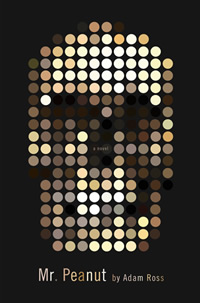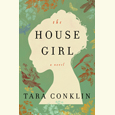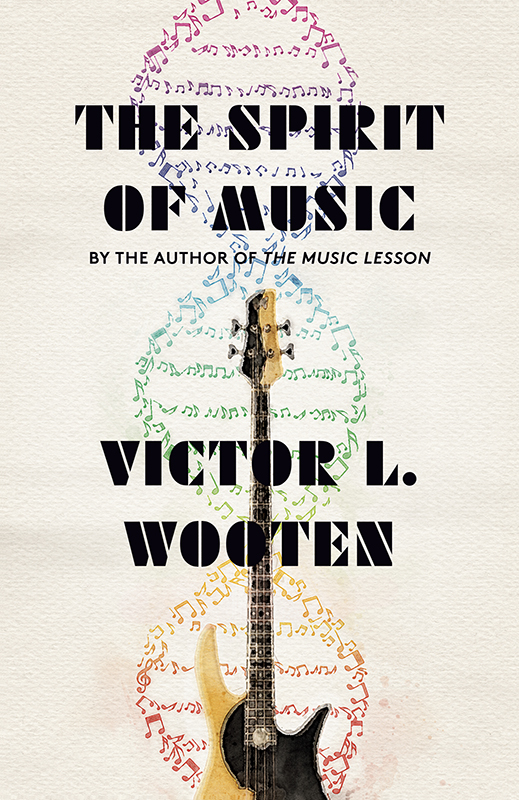"What Did You Do?"
With Mr. Peanut, Nashville author Adam Ross transforms the crime genre into a searing meditation on the hazards of marriage
Deep into the looping narrative of Adam Ross’s Mr. Peanut, David Pepin recalls the moment when he first encounters Alice, the woman who will become his wife. A graduate student in computer science destined to become a wealthy video-game designer, Pepin has signed up for a film class called “Marriage and Hitchcock,” though solely to satisfy a nettlesome degree requirement. Restless and indifferent, on the verge of leaving to enroll in a different course, he notices Alice entering the amphitheater, and, in a cinematic moment worthy of old Hitch himself, is smitten hopelessly. “It was her hair that arrested him,” Ross explains as Pepin gazes down at the girl. “Growing down to the small of her back, it had a particular equine luster and silkiness that caught light at the crown and made him understand immediately the pleasure of grooming horses and why girls sat before mirrors meditatively brushing their hair at bedtime.” The lecture begins, and as David angles to catch Alice’s eye, the professor presents his preliminary argument: “The primary function of all movies is the making of a couple,” he says. “Well, once that couple’s made, are they ready for what comes after? Can marriage save your life, or is it just the beginning of a long double homicide?”
Everything in the novel that precedes this fragment of memory flows both from and into it. By the end of the book, when Ross takes David Pepin back to this passage about the birth of his love for his doomed wife, the movie of their life together has traveled far beyond the coupling stage, and the question of whether or not David and Alice were properly prepared for the journey has been indisputably answered in the negative. For them, marriage has become a source not of salvation but of torment.
 When Alice is found dead of anaphylactic shock, the result of peanut allergy, it’s not clear why she ever sat down in front of a plate of peanuts in the first place, or why all the EpiPens in the apartment are missing. From the beginning, the ostensible mystery of this unconventional police procedural concerns her death. Who killed Alice? Did she commit suicide? Or was she murdered—by her husband, or, even more incredibly, by marriage itself?
When Alice is found dead of anaphylactic shock, the result of peanut allergy, it’s not clear why she ever sat down in front of a plate of peanuts in the first place, or why all the EpiPens in the apartment are missing. From the beginning, the ostensible mystery of this unconventional police procedural concerns her death. Who killed Alice? Did she commit suicide? Or was she murdered—by her husband, or, even more incredibly, by marriage itself?
Any of these three answers remains possible right up to the startling and disquieting conclusion of this remarkable debut novel. A veritably postmodern pastiche of pop-culture references, non-linear ‘cut-up’ narrative technique, symbolism, and crime-genre conventions, Mr. Peanut is admirable both for its formal and stylistic ambition and for its raw pathos. Small wonder it has been heralded by no less than the master of horror himself, Stephen King, as “the most riveting look at the dark side of marriage since Who’s Afraid of Virginia Woolf?“
King’s imprimatur is only one of a host of laudatory advance reviews and blurbs from big names like Richard Russo and Scott Smith. As the publishing world quivers on the shaking pillars of the global economy, cowering beneath the shadow of a looming alien mothership whose passengers—e-books, iPads, Kindles, and all their digital ilk—have yet to reveal themselves as friend or foe, it would seem a miracle beyond hope that such a complex and challenging novel might actually stand a chance of finding a substantial audience.
Mr. Peanut is indeed demanding; a novel that upends expectations and requires patience but rewards a faithful, diligent reading with reflections and questions that linger on long after the last page has been turned. The central complication of the novel is its protagonist, David Pepin, a man who dreams of his wife’s death—first, by divine accident; later, by his own hand. Pepin’s homicidal fantasies are not spawned from the kind of reactionary hyperbole one might feel when a spouse forgets to pay the electric bill or deletes the unwatched championship ball game from the DVR to make space for The Real Housewives of New York. Nor are they the stimulated by serious betrayal. (David does eventually have an affair, though long after he has begun to consider himself “a Walter Mitty of murder.”) His fantasies, rather, are expressions of enigmatic, volatile marital discord.
In the heat of an argument, David calls Alice—who, in the thirteen years since they married, has grown obese—a “goddamn blue whale” and laughs along when he overhears random strangers ridiculing her weight; on the next page, he is in love with Alice’s “giganticness” and, while making love to her, “imagine[s] himself an X-rated Gulliver among the Brobdingnags.” The Pepins fight frequently and furiously: “They’d been married to each other for thirteen years, and still went for the jugulars and balls,” Ross writes. Though he never reveals any homicidal fantasies festering in Alice’s brain, there’s no reason not to believe she hasn’t had a few. When, in the heat of argument, David screams, “I wish you were dead,” without pause Alice shoots back, “I wish you were dead too!” David insults Alice’s weight; Alice mocks his career and the acclaim he’s received for designing “inane,” “mind-killing” video games. Within a few hours, however, the Pepins have dissolved into mutual apologies and professions of enduring ardor. Then, suddenly, Alice is dead—and Pepin is in police custody, suspected of murder.
 Ross is admirably and courageously unsparing in his vision of a flawed man’s psyche. David at times too closely resembles the adolescent audience he invents video games for, and his failings are all the more pointed given his frequently scathing moments of tortured self-awareness, which suggest that he is capable of becoming (and ought to be) a better man.
Ross is admirably and courageously unsparing in his vision of a flawed man’s psyche. David at times too closely resembles the adolescent audience he invents video games for, and his failings are all the more pointed given his frequently scathing moments of tortured self-awareness, which suggest that he is capable of becoming (and ought to be) a better man.
To complicate matters further, Mr. Peanut presents not one but three possibly homicidal husbands. In addition to the Pepins, the novel examines the dysfunctional marriages of the two detectives investigating Alice’s death—Ward Hastroll, who vividly imagines smothering his wife and then dismembering her body and stuffing it in a suitcase (a nod to the Raymond Burr character in Rear Window, one of Mr. Peanut‘s many allusions to Hitchcock); and Sam Sheppard, who, prior to becoming a detective, spent a decade in prison before being exonerated of brutally murdering his then-pregnant wife.
Sheppard—in a touch reminiscent of Don DeLillo or E. L. Doctorow—is of course a fictionalized version of the historical Sam Sheppard, an Ohio Doctor whose sensational 1954 “media circus” trial allegedly inspired The Fugitive television series and film. Here, Sheppard appears as a chastened detective investigating the case of Alice Pepin and, consequently, forced to confront his lingering sense of responsibility for the conditions leading up to the slaying of his wife. Through the dense and lengthy exploration of the detectives’ parallel histories, Mr. Peanut offers them up as avatars for David Pepin himself. Joined with his and Alice’s tragic endgame, these subplots—which at times lengthen into parallel co-plots—imply a vision of relationship in which the “long double homicide” of marriage is not at all uncommon.
What redeems the dark anti-heroics of David Pepin (and, for that matter, Sam Sheppard) is the elegant, elegiac voice of Adam Ross, which sounds throughout Mr. Peanut with magisterial authority and nary a misstep. The discomfiting, even abhorrent implications of the novel’s violence—both real and imagined—command attention against instinct thanks to the strength and confidence of the prose, with which Ross lyrically delineates a host of moments in which moments miraculous, sordid, and even mundane become vehicles for penetrating insight.
As David gazes up at the night sky above Kauai in the midst of a retreat with Alice that has turned horribly wrong, he wonders at the myriad of shooting stars, “a stage of explosions and near misses.” The random chaos of the heavens mirrors the tortured recesses of his own mind, “the anxious span of minutes, of hours, spent wondering, semiparalyzed, that since nothing truly bad had ever happened to him until now, why was it impossible to think that this was only the beginning? That the rest of his life was an inescapable strip of suffering, relooping on itself for as long as he breathed.” Ross permeates Mr. Peanut with similarly stunning moments rife with rich, deeply nuanced reflections aimed deftly at the novel’s swirling themes. These finely wrought sentences and perspectives make Mr. Peanut both a suspenseful story and a thoughtful argument on the craft of fiction, which, as it turns out, is at much at stake in Mr. Peanut as the mystery around which the novel is built.
Away from the world of video games, David Pepin is also a frustrated novelist. Early on in Mr. Peanut, Ross makes clear that the answers both David and the reader are searching for can be found, somehow, in the locked room of his unfinished manuscript. “Being in the middle of a novel,” David muses, “was like being trapped inside a tangled ball of yarn. It was different than designing a game. A game’s players could enjoy infinite variations of action, but the lines of code, albeit vast, were limited. You were building a kind of wind-up toy that you too could see go. Once you’d written yourself into the middle of a novel, however, it seemed it could grow and grow around you. . . . You felt some sort of resolution or ending luring you forward but had no idea really how to actually arrive at it, though you had to get there nonetheless. Life, when you came down to it, was like that too. Oh, the psychologists and philosophers, the politicians and priests, posited paths for you, but how often did people, in spite of all this advice, really feel sure of their way? Didn’t think someone else knew something that they didn’t? Was on to something better than you were? Was on the right road while you raced into oblivion?”
If life were like a video game, the past could be fixed simply by playing again. If instead life, as Ross argues, is like a novel, then the inevitable pitfalls and wrong turns and the possibility of devastating loss must necessarily lie in the path of the conclusion toward which we are blindly and perpetually drawn—and when disaster befalls us, its transformative effect, good or ill, cannot be undone. We may not all secretly contemplate killing our spouses, but no one is immune to the fear of what might follow if the worst thing we can imagine ever comes to pass. Mr. Peanut may appear at first glance to be a murder mystery, or even a meditation on the hazards of marriage, but in the end what Adam Ross has achieved is something closer to a dissertation on how a soul can be warped by tragedy. In doing so, he draws us closer—sometimes uncomfortably; always memorably—to our greatest fears, which may, indeed, be all we truly have in common.
To read a Q&A with Adam Ross, click here.
Adam Ross will discuss Mr. Peanut at Davis-Kidd Booksellers in Nashville tonight at 7 p.m., and at Davis-Kidd Booksellers in Memphis on June 24 at 6 p.m.


